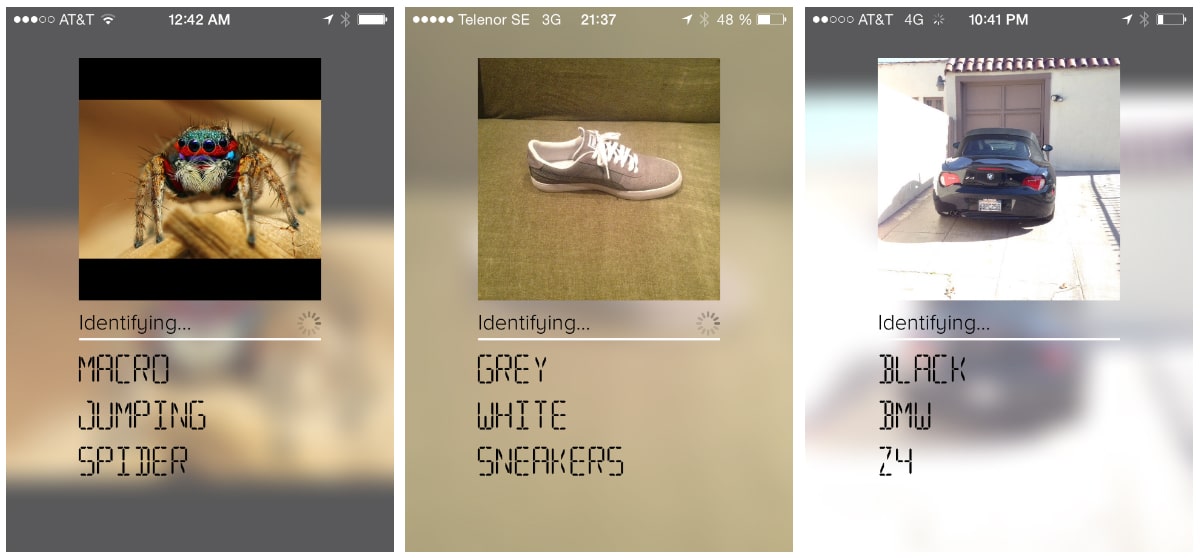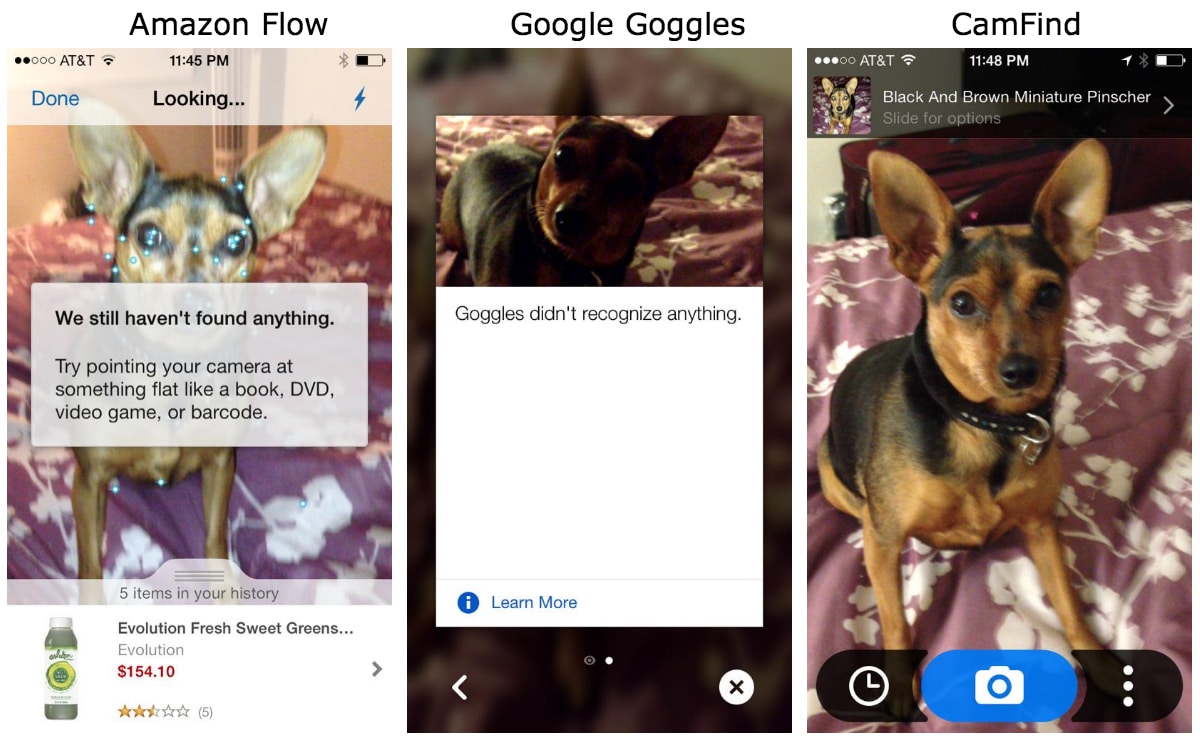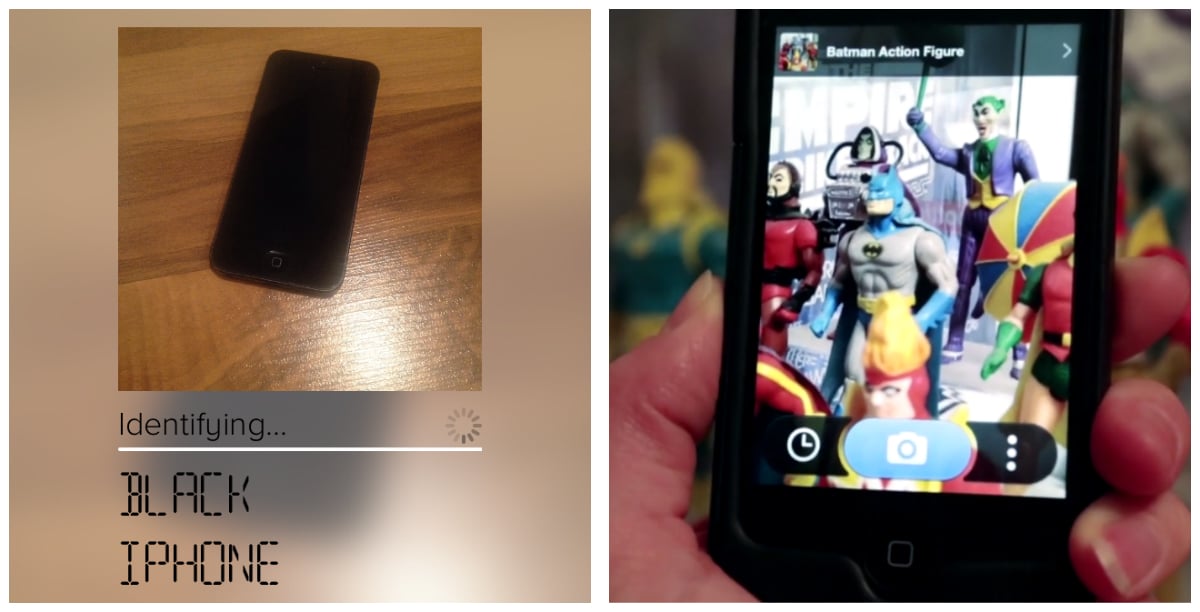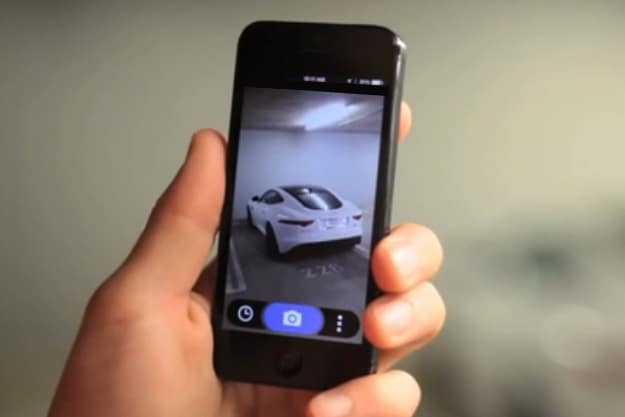One may bet there are many people out there that wish search applications would be as simple to use as to point a camera at something and then be instantly presented with all the information you could ever need. It has long been a science fiction dream, but a recent application update announcement brings tomorrow into our today. The application in question is CamFind and its third incarnation, version 3.0, blows its competitors out of the water.
Image recognition has so far been limited at best, but as new technologies will come to rely heavily on super quick and accurate image recognition software, almost all of the major players in the online sector are working on solving this problem. As said, so far their efforts have not impressed us much. The unimpressive effort in the implementation of image recognition (or even voice recognition) is beyond an annoyance, and inconvenience.
Let’s face it, so far we have heard random stories about major players like Google, with their Google Goggles which of course caters to their Google Glass glasses, and Amazon who implemented their image recognition service Flow into their new Fire smartphone. Also, there is SLYCE, which does not have their own product as of yet, and does not really make them a competitor in the big scheme of things.
Google and Amazon’s aim is to impress us with stylistic, (although slow) image recognition search features. After testing these two applications, which both are available for the iOS platform, our verdict is that we are less than impressed. Visual search should be fun, simple, and of course, accurate and fast for it to be considered an asset in anyone’s life.
What’s the difference between Google Goggles, Flow and CamFind?
The simple answer to that question is accuracy. Both Google Goggles and Amazon Firefly (also known as Amazon Flow whose tech was just introduced into Amazon’s Fire Phone) lack heavily in accuracy. Even though you try taking several different pictures, (as suggested by the app itself) the result is a disappointing message saying that nothing can be found. This is not how visual search should work, and even though we know visual search is a project constantly amassing data to become more accurate, it makes the CamFind app feel eons ahead of its competitors.
[pullquote]The CamFind app presents a breakthrough in visual search accuracy in their 3.0 release.[/pullquote] I almost want to say that it feels like the entire visual search industry is entering a 3.0 stage with this app version. The reason we here at Bit Rebels are so excited about the CamFind 3.0 release is because after having spent a couple of days trying it out in real life situations, we are once again increasingly optimistic that visual search is the next big thing. What makes CamFind such a pleasure to use is its incredibly simple and user friendly user interface. There’s no unnecessary guff that takes away from the enjoyment of using it. The necessary bits and bobs are nicely presented, and the major part of the process happens underneath the hood of the app itself, which is exactly how an app should be coded and presented.
I have personally been using all three of these apps for a couple of days now, and even though some searches lack hits across the board, the CamFind app is by all means the one that stands out in an almost unbelievable way. For example, neither app managed to pick up the brand of my new Puma sneakers on the first try, however on the second run the CamFind app recognized the colors and what kind of shoe it was and within a few seconds presented me with an array of search results which perfectly matched them as Puma Street Sneakers, something that the Google Goggles and Flow apps were not able to do at all.
App vs App Comparison
Our intention is to make a full blown comparison of the three out in the real world in real life situations. For example, how do they all perform when trying to find cheaper offers for products we find in stores, and what kind of information will the apps present when taking snapshots of movie posters? These are the real uses that will change our lives forever. So far the CamFind app has shown to be the grand winner of our attention.
What CamFind has done successfully, for the first time ever, is to close the gap between the physical and digital world, essentially connecting every object, product, place or landmark to the information and power of the internet. Such powerful image recognition could be a game changer, especially for wearables such as Google Glass and Samsung Gear/Glass. CamFind is continuously working on improving its accuracy and speed which will further push visual search and image recognition to a level that will render it as important as text search has been for so long.
[pullquote]CamFind has so far been downloaded 1.4 million times and over 14 million image recognition searches have been processed.[/pullquote] The core technology of the CamFind app is also used in another app provided by CamFind that is called TapTapSee. It has become the most used app for visually impaired and has rewarded the company with the 2014 Access Award from the American Foundation for the Blind (a prestigious award previously won by Apple, Google, and Disney.) As the interest for the app keeps growing, more companies are interested in tapping into its powerful technology. So far 230 companies and developers have signed up to use CamFind’s image recognition API.
For a small LA startup like CamFind, which to date has raised $3.5M, providing the most accurate image recognition search service is an incredible thing and deserves the attention of anyone looking to make their life easier. We have no doubt that as this little giant keeps taking on the most complex of online technologies, their apps will continue to innovate visual search by taking leaps for each version released and increase their lead in the industry.
“Not only does our technology allow the physical word to be transformed into an online shopping mall through a mobile device, but it also makes customers more educated by providing unbiased internet powered product information and comparison shopping when browsing physical stores.” – says Bradford Folkens, CTO of CamFind.
What about the core technology behind CamFind?
The new progressive search feature in CamFind version 3.0, which was just released, shows the visual search becoming more accurate and refined in near real time so it can go from car -> Mercedes -> 2007 Mercedes E Class as the app user watches it. We all want information, and we want it presented fast, that is why our focal point is currently on CamFind. The company behind the CamFind app has several pending patents for their image recognition and progressive visual search technology, where the visual answer becomes more refined and exact in real time.
“The release of CamFind 3.0 with its progressive visual search feature takes what is now possible with image recognition on mobile devices to the next level – our technology is not only able to tell you that you took a picture of a car, but the exact make and model of the car. Similarly, it can name the exact species of an insect you photographed or the breed of a dog and then provide you all the relevant information about it. This has never been done before, not even anything close to this.” – says Dominik Mazur, CEO of CamFind.
If we go back to my opening statement that we all want a search feature that is as simple as pointing your camera at something, then instantly presented with the information you are looking for. Well, as you can see, the CamFind app is closing the gap between that vision and reality in a major way.
Just being able to accurately search for prices, locations and pretty much anything you are interested in, and by pointing your phone at an object is a huge breakthrough in search altogether. The CamFind app is now available in the App Store as well as in the Google Play store.
CamFind Image Recognition Search App Presentation




COMMENTS